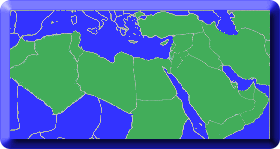
Topics in Middle Eastern and North African Economies
Document Type
Article
Publication Date
9-1-2014
Journal Title
Topics in Middle Eastern and North African Economies
Volume
16
Publisher
Middle East Economic Association and Loyola University Chicago
Abstract
The Turkish economy has shown great economic growth performance from 2000 onwards. Many main macroeconomic indicators show remarkable improvement, including poverty and income inequality. Although poverty has declined; it still has one of the highest ratios compared to other developing countries. In this respect, fighting against poverty and sustaining poverty alleviation are still very substantial issues for Turkey. Similarly, the labor force participation rate of females in the urban labor market has an increasing trend over this period. And, again the female labor force participation rate is one of the lowest ratios among OECD countries. With these examples in mind, this study tries to disentangle these disparate successes and challenges. We believe that Turkey is an appropriate case to explore these types of conflicts. The implications of the labor markets’ performance on the economic welfare of society and the constraints of foregoing poverty at the outset of integration to the labor market constitute two research pillars of this inquiry. There are two nested relationships between poverty and labor markets. One of them is an individual’s initial position on the face of poverty line before integrating to the labor market. Since the investment in human capital and job search processes are costly in nature, the initial income level and endowments become major determinants of this transition. The other relationship is that employment may not completely prevent the risk of being poor. Low-paid and informal jobs do create and extend in-work poverty. As a developing country, these are the questions that are still unresolved for Turkey. Using the annual cross-sectional micro data of the Income and Living Conditions Survey, this paper aims to empirically analyze the role of poverty on the participation of vulnerable sub-population groups (i.e. women and youth) into the labor market and to inquire into the importance of employment on poverty reduction for the selected years 2006, 2009 and 2011. The basic poverty measures are given in order to reveal the poor’s’ situation in the Turkish economy. The findings about the poverty level show that there is a decline. Besides, estimation results point out that being below the poverty line decreases the likelihood of being employed to some extent, and that in-work poverty strongly depends on the employment conditions that hold.
Identifier
2334-282X
ISSN
2334-282X
Recommended Citation
Bayar, Ayse Aylin and Degirmenci, Serkhan, "Is Poverty a Cause or a Result of Poor Labor Market Performance in Turkey?". Topics in Middle Eastern and North African Economies, electronic journal, 16, Middle East Economic Association and Loyola University Chicago, 2014, http://www.luc.edu/orgs/meea/
Creative Commons License

This work is licensed under a Creative Commons Attribution-Noncommercial-No Derivative Works 3.0 License.
Copyright Statement
© 2014 the authors



Comments
Presentation of the articles in the Topics in Middle Eastern and North African Economies was made possible by a limited license granted to Loyola University Chicago and Middle East Economics Association from the authors who have retained all copyrights in the articles. http://www.luc.edu/orgs/meea/volume16/meea16.htm